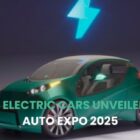People have realized the need to save the planet and future generations. The government is encouraging citizens to switch to Electric Vehicles (EVs). These vehicles use battery power to run. However, charging infrastructure requires pace and urgent attention. A robust network is crucial on a wide scale. It boosts ongoing EV adoption in the country. Electric vehicle owners should charge their vehicles conveniently and quickly.
Government initiatives
The government has launched several initiatives. It includes the FAME scheme to boost charging infrastructure and faster EV adoption. NEMMP scheme incentivizes EV purchases. However, private sector investment has a greater say in the success of such government initiatives. Private players like RWAs (Resident Welfare Associations) and charging infrastructure providers should contribute towards developing the charging infrastructure.
Potential roadblocks
The country has an ambitious goal to electrify the fast-growing transportation sector. More charging stations are required across the country. EV charging infrastructure in the country is currently unevenly distributed. A significant discrepancy is noticed between existing charging stations and EV numbers. For instance, one station serves approximately 1,103 EVs in the U.P state.
Problems faced
Solving the above problems is not easy. Private players such as RWAs and SMB owners are worried about the charging stations’ high running costs. It doesn’t allow them to avail potential opportunities. A few reasons are:
- Geographical diversity: Being a diverse country, it requires diverse charging infrastructure considerations. Few should resist water logging common in areas experiencing heavy downpours during monsoon seasons. Moreover, diverse travel patterns and population density in urban and rural areas require diverse charging infrastructure. Such a divide increases the challenge to establish and maintain the stations, especially in remote places. Investment is another issue.
- Lack of public charging infrastructure: Public charging stations currently are spread across the country and number only a few thousand. Although the government tries to push lucrative schemes, RWAs, small entrepreneurs, and retail stores are hesitant. These stations require a huge investment. They lack awareness concerning the benefits the stations may offer. Moreover, potential buyers feel anxious about the vehicle range.
- Inadequate power grid: Power grid requirements have increased significantly since the past year, placing it under significant strain. Hence, including EVs in the grid might only cause frequent power cuts, especially in rural areas. It might reduce EV buyers’ confidence and discourage its adoption. Potential owners may feel worried about charging their vehicles at home or midway on highways. It reduces private sector investment.
Solutions to revolutionize the country’s charging needs
The government is taking adequate steps to overcome the challenges. Efforts are made to develop an efficient and sustainable EV charging network. The central government is providing incentives to private sectors to boost investment in public charging infrastructure. It is promoting smart software solutions, developing fast charging, and trying to meet increasing power demands throughout the country.
Four prominent solutions to revolutionize charging needs
- Integrate renewable energy: Renewable energy sources, when integrated into EV charging infrastructure, make EV charging more sustainable and affordable. It helps reduce fossil fuel usage, global warming effects, and pollution. It also reduces power cuts while making charging more feasible and affordable. The government tries to leverage potential renewable energy sources. The plan is to increase the generation of renewable energy to 500GW capacity by 2030.
- Improve public charging infrastructure: Power Ministry collaborates with BEE agencies to develop electric vehicle charging station in Delhi and other cities in the country. The Heavy Industries Ministry has sanctioned the construction of thousands of charging stations in different states, expressways, and highways. It can help reduce range anxiety. Besides this, private players are encouraged to develop charging stations at parking lots, shopping malls, and business complexes.
- Incentivize private investments: The government recognizes the role of the private sector in developing public charging infrastructure. Hence, it has introduced various policies and initiatives. FAME Scheme is one such initiative where oil companies are provided with Rs. 800 crore to establish public EV charging stations. Moreover, 100% FDI is allowed to invest in public charging infrastructure.
- Encourage fast-charging technology and related software: It helps reduce charging times. Fast chargers take less charging time than slow chargers. It helps alleviate range anxiety. Hence, EV owners needing to travel long distances can do so without trouble. Moreover, fast-charging technology reduces the total number of charging stations required. They charge the vehicles quickly and are a better option than establishing several conventional charging stations.
Future impact of EV infrastructure
Robust development of charging infrastructure can positively impact the country’s EV market growth. It supports adoption and reduces range anxiety. Moreover, electric mobility adoption reduces Greenhouse Gas emissions and improves air quality. It can also positively impact the country’s economy. Setting up charging stations at strategic points is vital to boost EV adoption throughout the country.
Greenhouse gas emission reduction
The country’s existing transportation and energy sectors contribute to GHG emissions. Adopting electric mobility can help reduce such emissions. Besides preventing tailpipe emissions, electric vehicles convert 60% of the grid’s electrical energy. It is compared to diesel and petrol vehicles that manage to convert only 17-21 percent of fuel. It reduces GHG emissions, thus improving air quality, productivity, and public health while diminishing healthcare-related costs.
Enhanced renewable energy usage
The country is steadily enhancing its renewable energy capacity. Increased usage will need more power, thus increasing the demand for renewable energy generation. Power Ministry’s 2022 Open Access Rules enable potential buyers to contact producers directly to meet their growing green energy requirements. Enhanced renewable energy sources can help provide a better charging experience.
Economic development
Increased renewable energy sources and adoption can help reduce oil imports. The country can save money that can be used to generate employment in diverse sectors. An increase in battery and manufacturing also helps create employment opportunities. The fast-expanding industry may provide direct and indirect jobs for millions. This, in turn, can help the country to reach its economic objectives.
Powering ahead
Electric Vehicles are the need of the day to save the planet and its citizens. Although the country faces several challenges, the government is encouraging the development of charging stations at public places, highways, and expressways.



